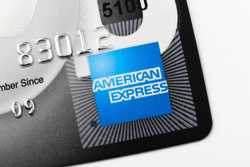Personal Finance
Our evaluations and opinions are not influenced by our advertising relationships, but we may earn a commission from our partners’ links. This content is created by TIME Stamped, under TIME’s direction and produced in accordance with TIME’s editorial guidelines and overseen by TIME’s editorial staff. Learn more about it.
Credit cards are an extremely popular method of payment, but nobody was born with one. Even the most experienced credit card users were all beginners at some point. If you’re new to credit cards, here’s what you need to know about secured cards, unsecured cards, cards for people with no credit history and credit cards for building your credit history.
Best beginners' credit cards compared 2024
| Card | Best for | APR | Annual fee |
|---|---|---|---|
card_name | Increasing credit limit | reg_apr,reg_apr_type | annual_fees |
card_name | Secured credit card | reg_apr,reg_apr_type | annual_fees |
card_name | Cash back | reg_apr,reg_apr_type | annual_fees |
card_name | Building credit | reg_apr,reg_apr_type | annual_fees |
card_name | Building credit with no deposit and annual fee | reg_apr,reg_apr_type | annual_fees |
Our Recommendations for the best credit card for beginners
Best to increase credit limit: card_name
This is card_name that has a annual_fees annual fee and offers no rewards. At the same time, it comes with an automatic credit line review, so that you can receive a higher credit line in as little as six months, without even having to ask for it. There's a annual_fees annual fee for this card, and no foreign transaction fees.
Best secured card for beginners: card_name
card_name is ideal for beginners who have had credit problems. All you have to do is submit a refundable security deposit of $49, $99 or $200 in order to get an initial credit line of $200. But otherwise, this is a very simple card, with no rewards, but also annual_fees annual fee and no foreign transaction fees.
Best for students who want to earn cash back: card_name
Student credit card users are likely to be beginners, and the card_name offers strong cash back rewards. You earn 3% cash back on dining, entertainment, popular streaming services and at grocery stores (excluding superstores like Walmart® and Target®), plus 1% on all other purchases. This card also features 8% cash back on Capital One Entertainment purchases, and 10% cash back on purchases on Uber and Uber Eats. There’s a annual_fees annual fee for this card.
Best for building credit: card_name
The card_name is part of a larger program that includes a credit builder account. Once you’ve made three monthly payments on-time, and have $100 or more in savings you can qualify for their Visa card, with no credit check. This card has a annual_fees annual fee.
Best for building credit with no deposit and annual fee: card_name
The card_name can be a great way to build credit without paying an annual fee. Chime doesn’t require you to open an account and doesn’t charge any fees. You simply transfer money to your account each month, which becomes your credit limit.
Types of credit cards for beginners with no credit
There are several types of credit cards for people who are new to credit including unsecured credit cards, secured credit cards, credit cards for people with no credit history and credit cards for building your credit history. Each has its strengths and weaknesses, and you need to understand how they work in order to choose the best one for you needs.
Unsecured credit cards
These are standard credit cards that don’t require a security deposit. Unsecured cards that are designed for people with bad credit or no credit history will often have an annual fee to account for the increased risk of default.
Secured credit cards
Secured credit cards work just like standard, unsecured cards, except that they require the payment of a refundable security deposit before your account can be opened. In most cases, you can submit deposits of varying sizes, and the amount of your deposit becomes your credit limit. When you close your card, you get your deposit back.
Because of the security deposit, the card issuer has little or no risk, and can offer these cards to applicants with limited credit history, or bad credit without charging a high annual fee.
Credit cards for people with no credit history
These are the typical credit cards that beginners will want. They often have few features and benefits, and no annual fee, but are widely available to those without an established credit history.
Credit cards for building your credit history
Credit cards for building credit history are similar to those made for people with no credit history. All credit cards will report your balance and payment information to the three major consumer credit bureaus.
Minimum requirements for those applying who have no credit history
There really aren’t any minimum requirements for beginners to get their first credit card. For example, you can qualify for some standard unsecured cards with no credit history, and there are secured cards available for those who have had serious credit problems. However, you will always need a Social Security Number (SSN) or Individual Taxpayer Identification Number (ITIN), along with a U.S. street address.
Other options to get a credit card with no credit
Even if you can’t qualify for the credit card that you want with no credit, there are still some options available.
Become an additional authorized user
When you become an additional authorized cardholder, you’ll be able to have a credit card in your own name that will help you to build credit. Just be aware that the primary account holder will always be responsible for the repayment of charges.
Gift cards
You can purchase reloadable and non-reloadable gift cards at many grocery stores, gas stations and office supply stores. These have the advantage of being a secure and convenient method of payment. But because there is no loan involved, you can’t build credit with these cards.
Alternatives to credit cards to build credit
Debit cards
Debit cards look and act much like credit cards, but they can’t be used to build your credit.
Store credit and charge card
Store cards are a type of credit card that can make sense for beginners. Most store cards can only be used for in-store and online purchases from the co-branded retailer. They also often have no annual fee and are easy to qualify for. Unfortunately, they usually have high interest rates.
Personal loans
Personal loans are another way to build your credit. There are specific loans designed for people with poor credit. Most personal loans are unsecured loans issued by banks or credit unions. There are also peer to peer personal loans available. As with any loan, the key to using it to improve your credit is to make your payments on-time.
Line of credit
A line of credit is like a personal loan, but it may be secured by property such as a home. A line of credit is unlike an installment loan in that you can borrow from the line of credit and pay it back as needed.
Credit builder loans
A credit builder loan is a product that allows you to add positive information to your credit history by repaying a loan specifically designed to build credit. You start by making a deposit, and then borrowing money from your deposit. As you pay back the money you borrowed, the balance and payment information is transmitted to the major consumer credit bureaus, just like any other loan.
Methodology
We chose the best credit cards for beginners by studying all of the available products, including their rewards, benefits and fees. Also, the author has over 15 years of experience analyzing and writing about credit cards and personal finance.
No matter your credit, there’s a card for you
Even if you have credit problems, or have never had a credit card before, there’s a product designed for your needs. By examining the different types of credit cards offered to beginners, you can find the card that is right for you.
Frequently asked questions (FAQs)
When should I get a credit card?
There’s no right time for everyone to get a credit card, but you should consider one when you are 18 or older, and need a more secure method of payment. That said, you shouldn’t apply for a credit card unless you feel that you are able to manage it responsibly. That means paying your bills on-time, while avoiding debt and overspending.
Is it OK to never have a credit card?
Many Americans go through life without ever having a credit card, and there’s nothing wrong with that. Credit cards are powerful financial tools, and can be very useful when managed responsibly. But if someone feels that using a credit card will hurt their personal finances, then it’s a good idea to use other methods of payment instead. But if your goal is to build credit, and you know how to use credit cards responsibly, then you should have one or more credit cards, even if you rarely use them.
How long does it take to get a credit card?
Many credit card applications are approved instantly, and the new card can arrive in the mail within seven to 10 business days. In fact, some card issuers now offer temporary credit card numbers to new applicants instantly upon approval.
How does a credit card work?
A credit card represents a revolving line of credit that card users can draw from, every time a purchase is made. When a purchase is made, the transaction is authenticated through a network such as Visa, Mastercard, American Express and Discover.
The amount of the charge is added to the balance, and the new balance becomes part of the next statement. Once the statement period ends, cardholders have the option of paying their balance in full to avoid interest, or paying just a portion of their balance and incurring interest until their entire balance is paid off. Your credit card account’s balance and payment history is reported to the three major consumer credit bureaus. When used responsibly, this can help you improve your credit history and credit score.
Many of the offers that appear on this site are from companies from which TIME Stamped receives compensation. This compensation may impact how and where products appear (including, for example, the order in which they appear). TIME Stamped provides a variety of offers, but these offers do not include all financial services companies or all products available.
The editorial content on this page (including, but not limited to, Pros and Cons) is not provided by any credit card issuer. Any opinions, analysis, reviews, or recommendations expressed here are the author’s alone, not those of any credit card issuer, and have not been reviewed, approved or otherwise endorsed by any credit card issuer.
The information presented here is created by TIME Stamped and overseen by TIME editorial staff. To learn more, see our About Us page.
Featured Articles

Business Platinum Card from American Express Review 2025
Learn more about the American Express Business Platinum Card, its many benefits, and who it’s right for.

Chase Freedom Unlimited vs. Citi Double Cash Card: Why You'll Earn More with Freedom
Both cards are without an annual fee and feature generous rewards programs. But Freedom Unlimited provides a competitive edge with its cash back welcome bonus.

British Airways Visa Signature® Card Review 2024
The British Airways Visa Signature® card features a lucrative bonus and valuable benefits, but it’s not perfect for everyone. Learn more.

